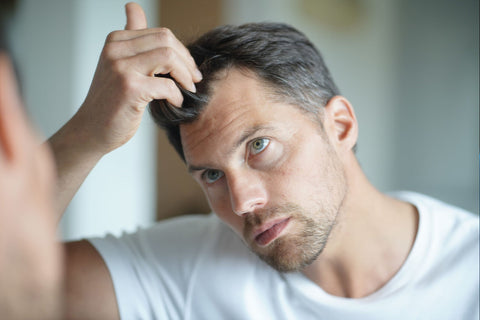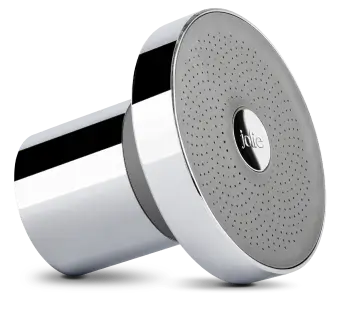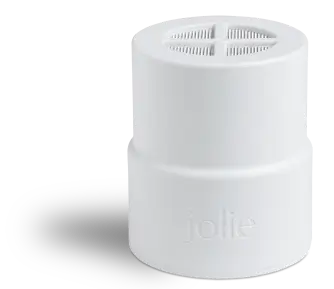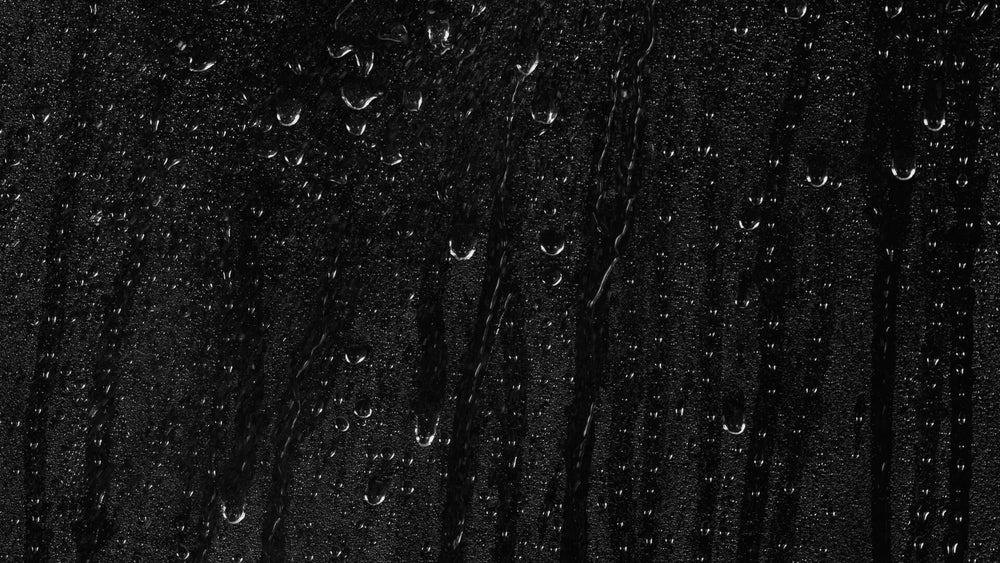window.productSubcriptionBundle = {"id":7285536194717,"title":"The Jolie Filtered Showerhead (With Subscription)","handle":"test-dev-the-filtered-showerhead","description":"\u003cmeta charset=\"utf-8\"\u003e\n\u003cdiv data-mce-fragment=\"1\" class=\"font-body font-light text-sm lg:text-base text-black mt-4 max-w-sm mx-auto\"\u003eThe most fundamental part of your daily routine, The Jolie Filtered Showerhead removes chlorine, heavy metals and other chemicals from your water for better skin, hair, and wellbeing.\u003c\/div\u003e\n\u003cdiv data-mce-fragment=\"1\" class=\"flex flex-col justify-center items-center mt-8\"\u003e\n\u003cdiv data-mce-fragment=\"1\" class=\"flex items-center\"\u003e\u003c\/div\u003e\n\u003c\/div\u003e","published_at":"2022-02-17T07:02:15-05:00","created_at":"2022-02-17T07:02:15-05:00","vendor":"Jolie","type":"Health \u0026 Beauty","tags":["TryNowAutomated","Verishop"],"price":12200,"price_min":12200,"price_max":12200,"available":true,"price_varies":false,"compare_at_price":15200,"compare_at_price_min":15200,"compare_at_price_max":16500,"compare_at_price_varies":true,"variants":[{"id":41980490547357,"title":"Brushed Steel","option1":"Brushed Steel","option2":null,"option3":null,"sku":"SHWR-BS-850036402084-S","requires_shipping":true,"taxable":true,"featured_image":{"id":40028927983909,"product_id":7285536194717,"position":2,"created_at":"2022-12-01T15:06:19-05:00","updated_at":"2025-06-25T06:41:01-04:00","alt":null,"width":1080,"height":1080,"src":"\/\/jolieskinco.com\/cdn\/shop\/products\/Steel_Taupe.png?v=1750848061","variant_ids":[41980490547357]},"available":true,"name":"The Jolie Filtered Showerhead (With Subscription) - Brushed Steel","public_title":"Brushed Steel","options":["Brushed Steel"],"price":12200,"weight":1588,"compare_at_price":15200,"inventory_management":"shopify","barcode":"","featured_media":{"alt":null,"id":32355953901861,"position":2,"preview_image":{"aspect_ratio":1.0,"height":1080,"width":1080,"src":"\/\/jolieskinco.com\/cdn\/shop\/products\/Steel_Taupe.png?v=1750848061"}},"requires_selling_plan":false,"selling_plan_allocations":[{"price_adjustments":[{"position":1,"price":15200},{"position":2,"price":3500}],"price":15200,"compare_at_price":12200,"per_delivery_price":15200,"selling_plan_id":811663517,"selling_plan_group_id":"85bf976274e79b5cb3c67862bffb70a7c0e566dd"}],"quantity_rule":{"min":1,"max":null,"increment":1}},{"id":41980490580125,"title":"Modern Chrome","option1":"Modern Chrome","option2":null,"option3":null,"sku":"SHWR-MC-850036402091-S","requires_shipping":true,"taxable":true,"featured_image":{"id":40028920054053,"product_id":7285536194717,"position":1,"created_at":"2022-12-01T15:05:01-05:00","updated_at":"2024-02-05T16:47:55-05:00","alt":null,"width":1080,"height":1080,"src":"\/\/jolieskinco.com\/cdn\/shop\/products\/SideAngle-Chrome_Grey.png?v=1707169675","variant_ids":[41980490580125]},"available":true,"name":"The Jolie Filtered Showerhead (With Subscription) - Modern Chrome","public_title":"Modern Chrome","options":["Modern Chrome"],"price":12200,"weight":1588,"compare_at_price":16500,"inventory_management":"shopify","barcode":"850036402091","featured_media":{"alt":null,"id":32355945578789,"position":1,"preview_image":{"aspect_ratio":1.0,"height":1080,"width":1080,"src":"\/\/jolieskinco.com\/cdn\/shop\/products\/SideAngle-Chrome_Grey.png?v=1707169675"}},"requires_selling_plan":false,"selling_plan_allocations":[{"price_adjustments":[{"position":1,"price":15200},{"position":2,"price":3500}],"price":15200,"compare_at_price":12200,"per_delivery_price":15200,"selling_plan_id":811663517,"selling_plan_group_id":"85bf976274e79b5cb3c67862bffb70a7c0e566dd"}],"quantity_rule":{"min":1,"max":null,"increment":1}},{"id":41980490678429,"title":"Jet Black","option1":"Jet Black","option2":null,"option3":null,"sku":"SHWR-JB-850036402077-S","requires_shipping":true,"taxable":true,"featured_image":{"id":32105386967197,"product_id":7285536194717,"position":4,"created_at":"2022-02-17T07:02:32-05:00","updated_at":"2025-06-25T06:41:01-04:00","alt":null,"width":3648,"height":3648,"src":"\/\/jolieskinco.com\/cdn\/shop\/products\/Jolie_Filtered_Showerhead_-_Side-6_da94b1ee-8d42-4ccf-aea8-f58067b053af.jpg?v=1750848061","variant_ids":[41980490678429]},"available":true,"name":"The Jolie Filtered Showerhead (With Subscription) - Jet Black","public_title":"Jet Black","options":["Jet Black"],"price":12200,"weight":1588,"compare_at_price":16500,"inventory_management":"shopify","barcode":"","featured_media":{"alt":null,"id":24413041459357,"position":4,"preview_image":{"aspect_ratio":1.0,"height":3648,"width":3648,"src":"\/\/jolieskinco.com\/cdn\/shop\/products\/Jolie_Filtered_Showerhead_-_Side-6_da94b1ee-8d42-4ccf-aea8-f58067b053af.jpg?v=1750848061"}},"requires_selling_plan":false,"selling_plan_allocations":[{"price_adjustments":[{"position":1,"price":15200},{"position":2,"price":3500}],"price":15200,"compare_at_price":12200,"per_delivery_price":15200,"selling_plan_id":811663517,"selling_plan_group_id":"85bf976274e79b5cb3c67862bffb70a7c0e566dd"}],"quantity_rule":{"min":1,"max":null,"increment":1}},{"id":45569197474085,"title":"Brushed Gold","option1":"Brushed Gold","option2":null,"option3":null,"sku":"SHWR-BG-850036402206","requires_shipping":true,"taxable":true,"featured_image":{"id":46164855554341,"product_id":7285536194717,"position":3,"created_at":"2024-05-16T09:57:47-04:00","updated_at":"2025-06-25T06:41:01-04:00","alt":null,"width":3360,"height":2241,"src":"\/\/jolieskinco.com\/cdn\/shop\/files\/BrushedGold.png?v=1750848061","variant_ids":[45569197474085]},"available":true,"name":"The Jolie Filtered Showerhead (With Subscription) - Brushed Gold","public_title":"Brushed Gold","options":["Brushed Gold"],"price":12200,"weight":1588,"compare_at_price":16500,"inventory_management":"shopify","barcode":"850036402206","featured_media":{"alt":null,"id":38800978084133,"position":3,"preview_image":{"aspect_ratio":1.499,"height":2241,"width":3360,"src":"\/\/jolieskinco.com\/cdn\/shop\/files\/BrushedGold.png?v=1750848061"}},"requires_selling_plan":false,"selling_plan_allocations":[{"price_adjustments":[{"position":1,"price":15200},{"position":2,"price":3500}],"price":15200,"compare_at_price":12200,"per_delivery_price":15200,"selling_plan_id":811663517,"selling_plan_group_id":"85bf976274e79b5cb3c67862bffb70a7c0e566dd"}],"quantity_rule":{"min":1,"max":null,"increment":1}},{"id":47893025128741,"title":"Vibrant Red","option1":"Vibrant Red","option2":null,"option3":null,"sku":"SHWR-VR-850036402220-S","requires_shipping":true,"taxable":true,"featured_image":{"id":32105386868893,"product_id":7285536194717,"position":5,"created_at":"2022-02-17T07:02:32-05:00","updated_at":"2025-06-25T06:41:01-04:00","alt":null,"width":3648,"height":3648,"src":"\/\/jolieskinco.com\/cdn\/shop\/products\/Jolie_Filtered_Showerhead_-_Side-3_c5ad9762-ec00-4b42-86b3-ca599db1fb47.jpg?v=1750848061","variant_ids":[47893025128741]},"available":true,"name":"The Jolie Filtered Showerhead (With Subscription) - Vibrant Red","public_title":"Vibrant Red","options":["Vibrant Red"],"price":12200,"weight":1588,"compare_at_price":16500,"inventory_management":"shopify","barcode":"850036402220","featured_media":{"alt":null,"id":24413041361053,"position":5,"preview_image":{"aspect_ratio":1.0,"height":3648,"width":3648,"src":"\/\/jolieskinco.com\/cdn\/shop\/products\/Jolie_Filtered_Showerhead_-_Side-3_c5ad9762-ec00-4b42-86b3-ca599db1fb47.jpg?v=1750848061"}},"requires_selling_plan":false,"selling_plan_allocations":[{"price_adjustments":[{"position":1,"price":15200},{"position":2,"price":3500}],"price":15200,"compare_at_price":12200,"per_delivery_price":15200,"selling_plan_id":811663517,"selling_plan_group_id":"85bf976274e79b5cb3c67862bffb70a7c0e566dd"}],"quantity_rule":{"min":1,"max":null,"increment":1}}],"images":["\/\/jolieskinco.com\/cdn\/shop\/products\/SideAngle-Chrome_Grey.png?v=1707169675","\/\/jolieskinco.com\/cdn\/shop\/products\/Steel_Taupe.png?v=1750848061","\/\/jolieskinco.com\/cdn\/shop\/files\/BrushedGold.png?v=1750848061","\/\/jolieskinco.com\/cdn\/shop\/products\/Jolie_Filtered_Showerhead_-_Side-6_da94b1ee-8d42-4ccf-aea8-f58067b053af.jpg?v=1750848061","\/\/jolieskinco.com\/cdn\/shop\/products\/Jolie_Filtered_Showerhead_-_Side-3_c5ad9762-ec00-4b42-86b3-ca599db1fb47.jpg?v=1750848061","\/\/jolieskinco.com\/cdn\/shop\/files\/Guava_Red.webp?v=1750848061"],"featured_image":"\/\/jolieskinco.com\/cdn\/shop\/products\/SideAngle-Chrome_Grey.png?v=1707169675","options":["Color"],"media":[{"alt":null,"id":32355945578789,"position":1,"preview_image":{"aspect_ratio":1.0,"height":1080,"width":1080,"src":"\/\/jolieskinco.com\/cdn\/shop\/products\/SideAngle-Chrome_Grey.png?v=1707169675"},"aspect_ratio":1.0,"height":1080,"media_type":"image","src":"\/\/jolieskinco.com\/cdn\/shop\/products\/SideAngle-Chrome_Grey.png?v=1707169675","width":1080},{"alt":null,"id":32355953901861,"position":2,"preview_image":{"aspect_ratio":1.0,"height":1080,"width":1080,"src":"\/\/jolieskinco.com\/cdn\/shop\/products\/Steel_Taupe.png?v=1750848061"},"aspect_ratio":1.0,"height":1080,"media_type":"image","src":"\/\/jolieskinco.com\/cdn\/shop\/products\/Steel_Taupe.png?v=1750848061","width":1080},{"alt":null,"id":38800978084133,"position":3,"preview_image":{"aspect_ratio":1.499,"height":2241,"width":3360,"src":"\/\/jolieskinco.com\/cdn\/shop\/files\/BrushedGold.png?v=1750848061"},"aspect_ratio":1.499,"height":2241,"media_type":"image","src":"\/\/jolieskinco.com\/cdn\/shop\/files\/BrushedGold.png?v=1750848061","width":3360},{"alt":null,"id":24413041459357,"position":4,"preview_image":{"aspect_ratio":1.0,"height":3648,"width":3648,"src":"\/\/jolieskinco.com\/cdn\/shop\/products\/Jolie_Filtered_Showerhead_-_Side-6_da94b1ee-8d42-4ccf-aea8-f58067b053af.jpg?v=1750848061"},"aspect_ratio":1.0,"height":3648,"media_type":"image","src":"\/\/jolieskinco.com\/cdn\/shop\/products\/Jolie_Filtered_Showerhead_-_Side-6_da94b1ee-8d42-4ccf-aea8-f58067b053af.jpg?v=1750848061","width":3648},{"alt":null,"id":24413041361053,"position":5,"preview_image":{"aspect_ratio":1.0,"height":3648,"width":3648,"src":"\/\/jolieskinco.com\/cdn\/shop\/products\/Jolie_Filtered_Showerhead_-_Side-3_c5ad9762-ec00-4b42-86b3-ca599db1fb47.jpg?v=1750848061"},"aspect_ratio":1.0,"height":3648,"media_type":"image","src":"\/\/jolieskinco.com\/cdn\/shop\/products\/Jolie_Filtered_Showerhead_-_Side-3_c5ad9762-ec00-4b42-86b3-ca599db1fb47.jpg?v=1750848061","width":3648},{"alt":null,"id":39989746991397,"position":6,"preview_image":{"aspect_ratio":1.499,"height":2241,"width":3360,"src":"\/\/jolieskinco.com\/cdn\/shop\/files\/Guava_Red.webp?v=1750848061"},"aspect_ratio":1.499,"height":2241,"media_type":"image","src":"\/\/jolieskinco.com\/cdn\/shop\/files\/Guava_Red.webp?v=1750848061","width":3360}],"requires_selling_plan":false,"selling_plan_groups":[{"id":"85bf976274e79b5cb3c67862bffb70a7c0e566dd","name":"The Jolie Filtered Showerhead (with subscription)","options":[{"name":"Filters delivered \u0026 billed every 3 months, starting 3 months after receiving your Jolie","position":1,"values":["The Filtered Showerhead (with subscription)"]}],"selling_plans":[{"id":811663517,"name":"Filters delivered \u0026 billed every 3 months, starting 3 months after receiving your Jolie","description":"","options":[{"name":"Filters delivered \u0026 billed every 3 months, starting 3 months after receiving your Jolie","position":1,"value":"The Filtered Showerhead (with subscription)"}],"recurring_deliveries":true,"price_adjustments":[{"order_count":1,"position":1,"value_type":"price","value":15200},{"order_count":null,"position":2,"value_type":"price","value":3500}],"checkout_charge":{"value_type":"percentage","value":100}}],"app_id":"4836205"}],"content":"\u003cmeta charset=\"utf-8\"\u003e\n\u003cdiv data-mce-fragment=\"1\" class=\"font-body font-light text-sm lg:text-base text-black mt-4 max-w-sm mx-auto\"\u003eThe most fundamental part of your daily routine, The Jolie Filtered Showerhead removes chlorine, heavy metals and other chemicals from your water for better skin, hair, and wellbeing.\u003c\/div\u003e\n\u003cdiv data-mce-fragment=\"1\" class=\"flex flex-col justify-center items-center mt-8\"\u003e\n\u003cdiv data-mce-fragment=\"1\" class=\"flex items-center\"\u003e\u003c\/div\u003e\n\u003c\/div\u003e"};
window.productSubcriptionBundleWithWrapper = {"id":10273261158693,"title":"The Jolie Filtered Showerhead (With Subscription)","handle":"the-jolie-filtered-showerhead-with-subscription","description":"\u003cmeta charset=\"utf-8\"\u003e\n\u003cdiv data-mce-fragment=\"1\" class=\"font-body font-light text-sm lg:text-base text-black mt-4 max-w-sm mx-auto\"\u003eThe most fundamental part of your daily routine, The Jolie Filtered Showerhead removes chlorine, heavy metals and other chemicals from your water for better skin, hair, and wellbeing.\u003c\/div\u003e\n\u003cdiv data-mce-fragment=\"1\" class=\"flex flex-col justify-center items-center mt-8\"\u003e\n\u003cdiv data-mce-fragment=\"1\" class=\"flex items-center\"\u003e\u003c\/div\u003e\n\u003c\/div\u003e","published_at":"2025-11-27T17:14:06-05:00","created_at":"2025-11-27T15:51:08-05:00","vendor":"Jolie","type":"Health \u0026 Beauty","tags":["TryNowAutomated","Verishop"],"price":12200,"price_min":12200,"price_max":12200,"available":true,"price_varies":false,"compare_at_price":15200,"compare_at_price_min":15200,"compare_at_price_max":16500,"compare_at_price_varies":true,"variants":[{"id":51661581484325,"title":"Brushed Steel","option1":"Brushed Steel","option2":null,"option3":null,"sku":"SHWR-BS-850036402084-S-GIFT","requires_shipping":true,"taxable":true,"featured_image":{"id":40028927983909,"product_id":10273261158693,"position":2,"created_at":"2022-12-01T15:06:19-05:00","updated_at":"2025-06-25T06:41:01-04:00","alt":null,"width":1080,"height":1080,"src":"\/\/jolieskinco.com\/cdn\/shop\/products\/Steel_Taupe.png?v=1750848061","variant_ids":[51661581484325]},"available":true,"name":"The Jolie Filtered Showerhead (With Subscription) - Brushed Steel","public_title":"Brushed Steel","options":["Brushed Steel"],"price":12200,"weight":1588,"compare_at_price":15200,"inventory_management":"shopify","barcode":"","featured_media":{"alt":null,"id":32355953901861,"position":2,"preview_image":{"aspect_ratio":1.0,"height":1080,"width":1080,"src":"\/\/jolieskinco.com\/cdn\/shop\/products\/Steel_Taupe.png?v=1750848061"}},"requires_selling_plan":false,"selling_plan_allocations":[],"quantity_rule":{"min":1,"max":null,"increment":1}},{"id":51661581517093,"title":"Modern Chrome","option1":"Modern Chrome","option2":null,"option3":null,"sku":"SHWR-MC-850036402091-S-GIFT","requires_shipping":true,"taxable":true,"featured_image":{"id":40028920054053,"product_id":10273261158693,"position":1,"created_at":"2022-12-01T15:05:01-05:00","updated_at":"2024-02-05T16:47:55-05:00","alt":null,"width":1080,"height":1080,"src":"\/\/jolieskinco.com\/cdn\/shop\/products\/SideAngle-Chrome_Grey.png?v=1707169675","variant_ids":[51661581517093]},"available":true,"name":"The Jolie Filtered Showerhead (With Subscription) - Modern Chrome","public_title":"Modern Chrome","options":["Modern Chrome"],"price":12200,"weight":1588,"compare_at_price":16500,"inventory_management":"shopify","barcode":"850036402091","featured_media":{"alt":null,"id":32355945578789,"position":1,"preview_image":{"aspect_ratio":1.0,"height":1080,"width":1080,"src":"\/\/jolieskinco.com\/cdn\/shop\/products\/SideAngle-Chrome_Grey.png?v=1707169675"}},"requires_selling_plan":false,"selling_plan_allocations":[],"quantity_rule":{"min":1,"max":null,"increment":1}},{"id":51661581549861,"title":"Jet Black","option1":"Jet Black","option2":null,"option3":null,"sku":"SHWR-JB-850036402077-S-GIFT","requires_shipping":true,"taxable":true,"featured_image":{"id":32105386967197,"product_id":10273261158693,"position":4,"created_at":"2022-02-17T07:02:32-05:00","updated_at":"2025-06-25T06:41:01-04:00","alt":null,"width":3648,"height":3648,"src":"\/\/jolieskinco.com\/cdn\/shop\/products\/Jolie_Filtered_Showerhead_-_Side-6_da94b1ee-8d42-4ccf-aea8-f58067b053af.jpg?v=1750848061","variant_ids":[51661581549861]},"available":true,"name":"The Jolie Filtered Showerhead (With Subscription) - Jet Black","public_title":"Jet Black","options":["Jet Black"],"price":12200,"weight":1588,"compare_at_price":16500,"inventory_management":"shopify","barcode":"","featured_media":{"alt":null,"id":24413041459357,"position":4,"preview_image":{"aspect_ratio":1.0,"height":3648,"width":3648,"src":"\/\/jolieskinco.com\/cdn\/shop\/products\/Jolie_Filtered_Showerhead_-_Side-6_da94b1ee-8d42-4ccf-aea8-f58067b053af.jpg?v=1750848061"}},"requires_selling_plan":false,"selling_plan_allocations":[],"quantity_rule":{"min":1,"max":null,"increment":1}},{"id":51661581582629,"title":"Brushed Gold","option1":"Brushed Gold","option2":null,"option3":null,"sku":"SHWR-BG-850036402206-GIFT","requires_shipping":true,"taxable":true,"featured_image":{"id":46164855554341,"product_id":10273261158693,"position":3,"created_at":"2024-05-16T09:57:47-04:00","updated_at":"2025-06-25T06:41:01-04:00","alt":null,"width":3360,"height":2241,"src":"\/\/jolieskinco.com\/cdn\/shop\/files\/BrushedGold.png?v=1750848061","variant_ids":[51661581582629]},"available":true,"name":"The Jolie Filtered Showerhead (With Subscription) - Brushed Gold","public_title":"Brushed Gold","options":["Brushed Gold"],"price":12200,"weight":1588,"compare_at_price":16500,"inventory_management":"shopify","barcode":"850036402206","featured_media":{"alt":null,"id":38800978084133,"position":3,"preview_image":{"aspect_ratio":1.499,"height":2241,"width":3360,"src":"\/\/jolieskinco.com\/cdn\/shop\/files\/BrushedGold.png?v=1750848061"}},"requires_selling_plan":false,"selling_plan_allocations":[],"quantity_rule":{"min":1,"max":null,"increment":1}},{"id":51661581615397,"title":"Vibrant Red","option1":"Vibrant Red","option2":null,"option3":null,"sku":"SHWR-VR-850036402220-S-GIFT","requires_shipping":true,"taxable":true,"featured_image":{"id":32105386868893,"product_id":10273261158693,"position":5,"created_at":"2022-02-17T07:02:32-05:00","updated_at":"2025-06-25T06:41:01-04:00","alt":null,"width":3648,"height":3648,"src":"\/\/jolieskinco.com\/cdn\/shop\/products\/Jolie_Filtered_Showerhead_-_Side-3_c5ad9762-ec00-4b42-86b3-ca599db1fb47.jpg?v=1750848061","variant_ids":[51661581615397]},"available":true,"name":"The Jolie Filtered Showerhead (With Subscription) - Vibrant Red","public_title":"Vibrant Red","options":["Vibrant Red"],"price":12200,"weight":1588,"compare_at_price":16500,"inventory_management":"shopify","barcode":"850036402220","featured_media":{"alt":null,"id":24413041361053,"position":5,"preview_image":{"aspect_ratio":1.0,"height":3648,"width":3648,"src":"\/\/jolieskinco.com\/cdn\/shop\/products\/Jolie_Filtered_Showerhead_-_Side-3_c5ad9762-ec00-4b42-86b3-ca599db1fb47.jpg?v=1750848061"}},"requires_selling_plan":false,"selling_plan_allocations":[],"quantity_rule":{"min":1,"max":null,"increment":1}}],"images":["\/\/jolieskinco.com\/cdn\/shop\/products\/SideAngle-Chrome_Grey.png?v=1707169675","\/\/jolieskinco.com\/cdn\/shop\/products\/Steel_Taupe.png?v=1750848061","\/\/jolieskinco.com\/cdn\/shop\/files\/BrushedGold.png?v=1750848061","\/\/jolieskinco.com\/cdn\/shop\/products\/Jolie_Filtered_Showerhead_-_Side-6_da94b1ee-8d42-4ccf-aea8-f58067b053af.jpg?v=1750848061","\/\/jolieskinco.com\/cdn\/shop\/products\/Jolie_Filtered_Showerhead_-_Side-3_c5ad9762-ec00-4b42-86b3-ca599db1fb47.jpg?v=1750848061","\/\/jolieskinco.com\/cdn\/shop\/files\/Guava_Red.webp?v=1750848061"],"featured_image":"\/\/jolieskinco.com\/cdn\/shop\/products\/SideAngle-Chrome_Grey.png?v=1707169675","options":["Color"],"media":[{"alt":null,"id":32355945578789,"position":1,"preview_image":{"aspect_ratio":1.0,"height":1080,"width":1080,"src":"\/\/jolieskinco.com\/cdn\/shop\/products\/SideAngle-Chrome_Grey.png?v=1707169675"},"aspect_ratio":1.0,"height":1080,"media_type":"image","src":"\/\/jolieskinco.com\/cdn\/shop\/products\/SideAngle-Chrome_Grey.png?v=1707169675","width":1080},{"alt":null,"id":32355953901861,"position":2,"preview_image":{"aspect_ratio":1.0,"height":1080,"width":1080,"src":"\/\/jolieskinco.com\/cdn\/shop\/products\/Steel_Taupe.png?v=1750848061"},"aspect_ratio":1.0,"height":1080,"media_type":"image","src":"\/\/jolieskinco.com\/cdn\/shop\/products\/Steel_Taupe.png?v=1750848061","width":1080},{"alt":null,"id":38800978084133,"position":3,"preview_image":{"aspect_ratio":1.499,"height":2241,"width":3360,"src":"\/\/jolieskinco.com\/cdn\/shop\/files\/BrushedGold.png?v=1750848061"},"aspect_ratio":1.499,"height":2241,"media_type":"image","src":"\/\/jolieskinco.com\/cdn\/shop\/files\/BrushedGold.png?v=1750848061","width":3360},{"alt":null,"id":24413041459357,"position":4,"preview_image":{"aspect_ratio":1.0,"height":3648,"width":3648,"src":"\/\/jolieskinco.com\/cdn\/shop\/products\/Jolie_Filtered_Showerhead_-_Side-6_da94b1ee-8d42-4ccf-aea8-f58067b053af.jpg?v=1750848061"},"aspect_ratio":1.0,"height":3648,"media_type":"image","src":"\/\/jolieskinco.com\/cdn\/shop\/products\/Jolie_Filtered_Showerhead_-_Side-6_da94b1ee-8d42-4ccf-aea8-f58067b053af.jpg?v=1750848061","width":3648},{"alt":null,"id":24413041361053,"position":5,"preview_image":{"aspect_ratio":1.0,"height":3648,"width":3648,"src":"\/\/jolieskinco.com\/cdn\/shop\/products\/Jolie_Filtered_Showerhead_-_Side-3_c5ad9762-ec00-4b42-86b3-ca599db1fb47.jpg?v=1750848061"},"aspect_ratio":1.0,"height":3648,"media_type":"image","src":"\/\/jolieskinco.com\/cdn\/shop\/products\/Jolie_Filtered_Showerhead_-_Side-3_c5ad9762-ec00-4b42-86b3-ca599db1fb47.jpg?v=1750848061","width":3648},{"alt":null,"id":39989746991397,"position":6,"preview_image":{"aspect_ratio":1.499,"height":2241,"width":3360,"src":"\/\/jolieskinco.com\/cdn\/shop\/files\/Guava_Red.webp?v=1750848061"},"aspect_ratio":1.499,"height":2241,"media_type":"image","src":"\/\/jolieskinco.com\/cdn\/shop\/files\/Guava_Red.webp?v=1750848061","width":3360}],"requires_selling_plan":false,"selling_plan_groups":[],"content":"\u003cmeta charset=\"utf-8\"\u003e\n\u003cdiv data-mce-fragment=\"1\" class=\"font-body font-light text-sm lg:text-base text-black mt-4 max-w-sm mx-auto\"\u003eThe most fundamental part of your daily routine, The Jolie Filtered Showerhead removes chlorine, heavy metals and other chemicals from your water for better skin, hair, and wellbeing.\u003c\/div\u003e\n\u003cdiv data-mce-fragment=\"1\" class=\"flex flex-col justify-center items-center mt-8\"\u003e\n\u003cdiv data-mce-fragment=\"1\" class=\"flex items-center\"\u003e\u003c\/div\u003e\n\u003c\/div\u003e"};
window.filterSubcriptionBundle = {"id":7279876243613,"title":"The Replacement Filter Subscription","handle":"the-replacement-filter-2","description":"The Jolie Replacement Filter is the best-in-class shower filter on the market and is designed exclusively for the Jolie Filtered Showerhead. The replacement filter needs to be replaced every 90 days for better skin, hair, and wellbeing.","published_at":"2022-02-09T14:54:41-05:00","created_at":"2022-02-09T14:52:47-05:00","vendor":"Jolie","type":"","tags":["TryNowAutomated"],"price":0,"price_min":0,"price_max":0,"available":true,"price_varies":false,"compare_at_price":null,"compare_at_price_min":0,"compare_at_price_max":0,"compare_at_price_varies":false,"variants":[{"id":41945873580189,"title":"Default Title","option1":"Default Title","option2":null,"option3":null,"sku":"SHWR-FILTER-850036402060-F","requires_shipping":true,"taxable":true,"featured_image":null,"available":true,"name":"The Replacement Filter Subscription","public_title":null,"options":["Default Title"],"price":0,"weight":0,"compare_at_price":null,"inventory_management":"shopify","barcode":"850036402060","requires_selling_plan":true,"selling_plan_allocations":[{"price_adjustments":[{"position":1,"price":0},{"position":2,"price":3500}],"price":0,"compare_at_price":0,"per_delivery_price":0,"selling_plan_id":795213981,"selling_plan_group_id":"1be5f944c73d4fa86b03a272e25100ddecbe734d"},{"price_adjustments":[{"position":1,"price":2400}],"price":2400,"compare_at_price":0,"per_delivery_price":2400,"selling_plan_id":689828725029,"selling_plan_group_id":"1be5f944c73d4fa86b03a272e25100ddecbe734d"}],"quantity_rule":{"min":1,"max":null,"increment":1}}],"images":["\/\/jolieskinco.com\/cdn\/shop\/products\/FilterPDP-Front.png?v=1644436442"],"featured_image":"\/\/jolieskinco.com\/cdn\/shop\/products\/FilterPDP-Front.png?v=1644436442","options":["Title"],"media":[{"alt":null,"id":24357721931933,"position":1,"preview_image":{"aspect_ratio":1.0,"height":500,"width":500,"src":"\/\/jolieskinco.com\/cdn\/shop\/products\/FilterPDP-Front.png?v=1644436442"},"aspect_ratio":1.0,"height":500,"media_type":"image","src":"\/\/jolieskinco.com\/cdn\/shop\/products\/FilterPDP-Front.png?v=1644436442","width":500}],"requires_selling_plan":true,"selling_plan_groups":[{"id":"1be5f944c73d4fa86b03a272e25100ddecbe734d","name":"Replacement Filter (purchased alongside Filtered Showerhead)","options":[{"name":"Delivered every 3 months","position":1,"values":["Delivered every 3 months","3 Months"]}],"selling_plans":[{"id":795213981,"name":"Billed \u0026 delivered every 3 months at $35","description":"","options":[{"name":"Delivered every 3 months","position":1,"value":"Delivered every 3 months"}],"recurring_deliveries":true,"price_adjustments":[{"order_count":1,"position":1,"value_type":"price","value":0},{"order_count":null,"position":2,"value_type":"price","value":3500}],"checkout_charge":{"value_type":"percentage","value":100}},{"id":689828725029,"name":"{{H}} Delivered every 3 months - Discounted","description":"","options":[{"name":"Delivered every 3 months","position":1,"value":"3 Months"}],"recurring_deliveries":true,"price_adjustments":[{"order_count":null,"position":1,"value_type":"price","value":2400}],"checkout_charge":{"value_type":"percentage","value":100}}],"app_id":"4836205"}],"content":"The Jolie Replacement Filter is the best-in-class shower filter on the market and is designed exclusively for the Jolie Filtered Showerhead. The replacement filter needs to be replaced every 90 days for better skin, hair, and wellbeing."};
Explore the intricacies of hard water and dandruff formation along with three tips to avoid it from the experts at Jolie!
If you’ve ever noticed flakiness on your scalp, especially in the winter months, the odds are that there are unseen forces at play causing your flaky condition. Thankfully, there are plenty of things you can do in the comfort of your own home to help stop your flakes before they fall.

Demystifying Dandruff
Almost everyone’s heard of dandruff—it’s the little dots and flakes on the shoulders of black shirt, and while it can come with irritation and itchiness, it’s mostly just embarrassing. It’s a common scalp condition characterized by flaking of the skin on the scalp. It can be caused by various factors, including dry skin, overgrowth of a yeast-like fungus called Malassezia, sensitivity to hair care products, and certain medical conditions such as dermatitis or psoriasis. While dandruff and dry scalp are certainly similar in their presentation, dandruff is a condition that has more to do with skin cell turnover and microbial activity on the scalp, whereas dry scalp is exactly as it sounds: under-moisturized skin that begins to flake and fall freely. Both have well-established home remedies, and both can be exacerbated by factors you may not necessarily be considering.
Investigating the Science Behind Dandruff Formation
The primary culprit in the presentation of true dandruff is the Malassezia fungus. The fungus is naturally present on the skin surface of most individuals, including the scalp. Dandruff can occur when this fungus is allowed to run rampant and unchecked, ultimately reproducing freely and feeding on the natural oils produced by the scalp, primarily sebum. As the fungus metabolizes these oils, it produces byproducts that can irritate the scalp and trigger an immune response. This immune response leads to inflammation and an accelerated shedding of skin cells from the scalp. Additionally, the presence of Malassezia can disrupt the normal turnover of skin cells on the scalp, resulting in an accumulation of dead skin cells that manifest as dandruff flakes.

Dry scalp is a lesser form of a similar condition which, as you can probably guess from the name, is the result of dry skin. While it is indeed a lesser form of a similar condition, presenting with the same symptoms (flakiness of the scalp and irritation), it is not necessarily easier to treat, as some people are just more prone to dry skin. Dry scalp occurs when your scalp is stripped of its natural moisturizing oils, leaving your skin exposed and dry, ultimately resulting in the shedding of flakes over time.
Hard Water: The Hidden Culprit?
The term “hard water” is thrown around a lot, but what actually is it? Hard water is the stuff that makes bagels and pizza so good in New York. It is water that is rich in naturally occurring minerals like calcium and magnesium which are safe for human consumption (and vital for bagel production). Unfortunately, in terms of your skin, it can be a slowly accumulating detriment that can cause all kinds of skin issues, including dry scalp, and worsen others, like dandruff. While hard water itself doesn’t directly cause dandruff, it can certainly exacerbate your symptoms and lead to scalp conditions that can increase flakiness. Hard water is also most definitely a strong contributor to dry scalp. Essentially, what can happen with repeat exposure of the scalp to hard water minerals is that they can build up beneath your hair and around your follicles and form invisible layers that can cause all sorts of mess on your scalp. Lime is that white buildup on all of the surfaces of your bathroom that are repeatedly exposed to water—it’s incredibly difficult to remove, and it is the direct result of hard water minerals. The same buildup can occur on your skin, hair, and scalp, and cause dry scalp flakiness as well as exacerbate the symptoms of dandruff. This residue can disrupt the scalp's natural pH balance, leading to dryness, irritation, and potentially the worsening dandruff symptoms. Additionally, this buildup can actually prevent the effectiveness of moisturizing products for the hair and scalp by creating an impenetrable barrier that stops your products in their tracks.

3 Solutions for Hard Water Dandruff
Now let's talk solutions for hard water dandruff:
1. Install a Jolie Hard Water Shower Filter
Hard water is incredibly common, and the odds are that most people are living with its effects on their body without realizing it. Hard water is certainly safe for human consumption, and calcium and magnesium are essential minerals for bodily function. As previously described, however, it is a big old no-no for your skin and hair. Thankfully, there is a super easy, incredibly convenient solution waiting for you at the click of a button. The Jolie Filtered Showerhead uses a proprietary blend of filtration mediums to completely remove all traces of hard water minerals from your shower water, leaving you with a purified shower experience that stops the buildup of impenetrable barriers on your hair and scalp. It can be universally installed in all modern bathroom fixtures, and even has a subscription service for replacement filters that will save you money and brain power when you sign up. By using a Jolie Filtered Showerhead and eliminating hard water minerals, you’ve just taken a giant leap towards the prevention of dry scalp, which has a criminally large role in the worsening of dandruff symptoms.

2. Implement a Proper Hair Care Regimen for Dandruff Prevention
There are a number of shampoo ingredients that dandruff and dry scalp sufferers can and should avoid if they want to lessen their symptoms and visible shedding:
-
Sulfates: Sulfates, such as sodium lauryl sulfate (SLS) and sodium laureth sulfate (SLES), are harsh detergents that can strip the scalp of its natural oils, leading to dryness and irritation.
-
Fragrances: Fragrances and artificial scents in shampoos can contain allergens and irritants that may trigger or worsen dandruff symptoms in sensitive individuals.
-
Parabens: Parabens are preservatives commonly found in hair care products. Some studies suggest a link between parabens and scalp irritation, although more research is needed to confirm this association.
-
Silicones: While silicones can help to smooth and soften the hair, they can also create a barrier on the scalp that traps oils and dead skin cells, potentially exacerbating dandruff symptoms.
-
Alcohol: Alcohol-based ingredients, such as ethanol or isopropyl alcohol, can be drying to the scalp and may worsen dandruff symptoms, especially in individuals with sensitive skin.
By avoiding these ingredients and opting for gentle, moisturizing shampoos formulated specifically for dandruff-prone scalps, sufferers can help alleviate symptoms and maintain a healthy scalp environment.
3. Scalp Exfoliation Treatments
Like any other surface of your skin, your scalp can benefit greatly from regular exfoliation. Using gentle scalp brushes or exfoliating to lightly massage the scalp can help to break up dead skin cells and other residues on your head so that they can be easily and effectively washed away. It is important to be as easy on your scalp during this process as possible, as causing more irritation can have the reverse effect than the one that was sought. Chemical exfoliation is also an effective option. Chemical exfoliations with products containing alpha hydroxy acids (AHAs) or beta hydroxy acids (BHAs) work by dissolving buildup and promoting cellular turnover on the scalp. AHAs, such as glycolic acid and lactic acid, are water-soluble acids that work on the surface of the skin to break down dead skin cells and other debris, helping to unclog pores and remove buildup on the scalp. BHAs, such as salicylic acid, are oil-soluble acids that can penetrate deeper into the pores to dissolve excess oil, debris, and dead skin cells, making them effective for treating conditions like dandruff and acne on the scalp. By promoting cellular turnover, AHAs and BHAs help to reveal fresher, healthier skin underneath, leading to a smoother, clearer scalp and improved overall scalp health.

Remove Hard Water & Take Control of Your Scalp Health with Jolie
Dandruff and dry, flaky scalp symptoms are unfortunate facts of life, but one that many people share. The good news is that there are several avenues that sufferers can take to help ease their conditions and reduce their symptoms immensely. The most important thing a dandruff sufferer can do is invest in a filtered showerhead like the Jolie. By removing the minerals that build up on your scalp and directly cause the conditions that dry out and irritate your scalp, the Jolie Filtered Showerhead can help stop your symptoms before they even begin. Treat yourself to a Jolie today and watch as your flaky scalp washes away.
 Back to top
Back to top








